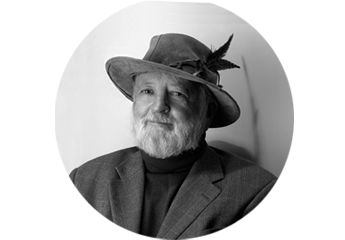When I was a child of four it was a wondrous thing to look up at a giraffe. From the advantage of being small, the size of these beautiful animals seemed to tower towards the sky. Elegant in posture and stance, with friendly large eyes,that looked down from a great distance, they seemed to suggest that they were much wiser than they seemed. In the world of children these are nothing less than magical animals. May they always be with us.
And now I read that their populations are collapsing: poaching being a major factor. Until now we were keenly aware that rhino and elephants were sustaining pressure. But giraffes? They were never in the news as endangered. That has changed. And what if they become extinct? Would it matter? Clearly, from the world of children, a wonderful animal would have been removed: leaving the lives of children the poorer for that.
So what about the great religions of the world in all of this?
Conservation programmes across the world are not protecting species. Why? Because an affection for wildlife is not there. Yes, we may not want to see a species pass to extinction but we are not exercised on the issue to want to DO something to save it. I can speak bluntly of this because I have been involved in conservation all my life; a life, I suspect, that is longer than most reading this blog. And yes, there are wonderfully dedicated people around the planet who care for nature with a passion. But the problem is one of numbers. Conservation has become the politics of numbers. Unless people, in their millions, offer a voice towards conservation, we will continue in this inadequate drip-feed approach to conserving species. Yet, how are we to reach the millions that are needed?
The great religions in the world have the ears of the hundreds of millions of their followers. They also have great cathedrals and mosques, churches and temples that could readily be used to reach out to their faithful on matters of nature conservation. The founders of these great religions discovered enlightenment in wild places. Such places appear to hold spiritual qualities that can benefit all of us, provided they remain intact. Therefore, once a year, could the spiritual leaders of these great religions not preach to their people of the value of preserving nature? That way the thinking of hundreds of millions of people will enter the debate on how best to prevent the draining away of so many species into extinction.
We have tried the other; dedicated groups across the world trying to do what they can against the indifference of the many. And it has not worked. The Red Books of extinctions are proof of that.
The dedicated associations, clubs and individuals who care, with a passion, for nature might consider this and now focus their energies on persuading the religious leaders, that they know, to take up this thinking. They, in turn,to be encouraged to generate a ground-swell that will move up the chain to the highest spiritual leaders that they would embrace this idea for conservation, and make it possible that the places of worship under their care would, for one day a year, be used in this fashion. We need their help. At this stage we must think in such radical ways if we are ever to instill a global ethic for conservation.
Members of conservation clubs and associations around the world, and public conservation bodies, entrusted to the preservation of species, might wish to debate this idea. We have tried everything else – and yet we lose species. This loss will continue unless people, in their tens of millions, have a change of perception of the value of wildlife to all of us.
Patrick.
